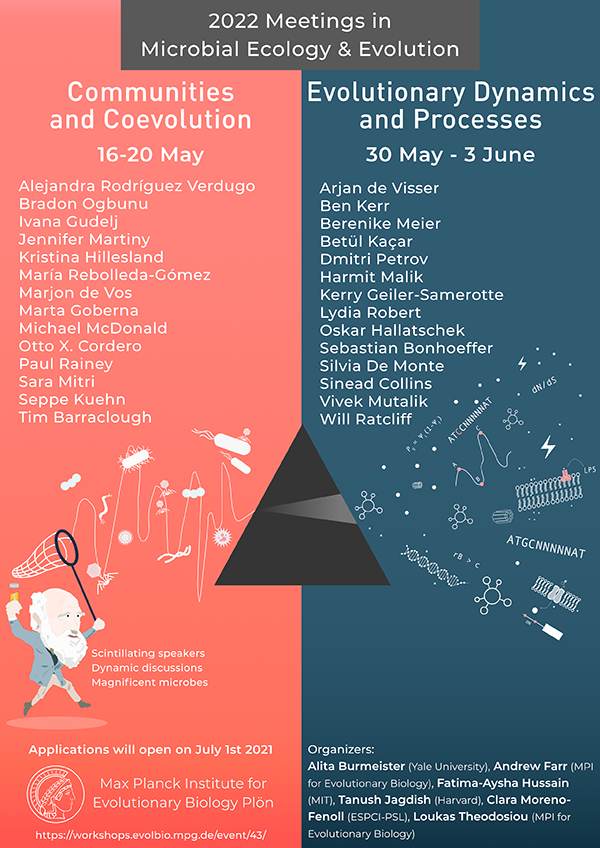Speaker
Description
Microbial communities comprise an astonishing diversity. Decomposing these often complex communities into small community modules holds the promise to elucidate the mechanisms behind the assembly and maintenance of this diversity. Among these, the apparent competition module, where two prey types compete and are preyed on by a shared predator, has received particular attention, often with a focus on the direct, vertical predator-prey interaction. In this contribution, I will focus on higher-order, horizontal interactions between the two prey types and present two different cases of modified coexistence outcomes within an apparent competition food web module. The first horizontal interaction is created by nutritional quality differences of the two prey types in the module. I will show that such quality differences strengthen an otherwise often inferior prey strategy if it is the only source of an essential resource for the predator. Within the same module, a second horizontal interaction arises from different strategies of resource acquisition by the prey (e.g. autotrophic phytoplankton versus heterotrophic bacteria, or cross-feeding bacterial taxa), creating nutritional dependencies between the two prey types that can ensure prey persistence. In both of these cases, one prey type delivers essential resources either to its predator or competitor, and, by making itself indispensable, strengthens its persistence within the community. These findings suggest that higher-order modifications to trophic interactions are crucial components in the establishment and maintenance of microbial communities.

